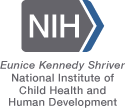Links to NCHS/NHIS Special Topics and Projects
NCHS Overview of NHIS
The National Health Interview Survey (NHIS) is the principal source of information on the health of the civilian noninstitutionalized population of the United States and is one of the major data collection programs of the National Center for Health Statistics (NCHS).
NCHS List of NHIS Supplements and Co-Sponsors
This page links to a PDF that lists the sponsored supplements fielded in each year of the NHIS as well as the questionnaire and data files associated with this supplement in the original NCHS data.
NCHS Race/Ethnicity Documentation Page
The purpose of this site is to provide users of the National Health Interview Survey (NHIS) with in-depth information on race and Hispanic origin, two of the most important demographic variables that are collected in the survey. Here you will find details on race and Hispanic origin data from the NHIS, including the wording of race and Hispanic origin questions from the NHIS, a brief history of race and Hispanic origin data collection in the survey, explanations of the editing and imputation process for the race and Hispanic origin data, frequently asked questions on the NHIS race and Hispanic origin data, and links to important information about collecting race and Hispanic origin data in federal surveys.
Tobacco Information in the NHIS
The purpose of this site is to provide users of the National Health Interview Survey (NHIS) with in-depth information on tobacco related variables collected in the survey. The site provides details on tobacco related data from the NHIS, including the wording of tobacco questions, a brief history of tobacco related data collection in the survey, smoking status recodes, frequently asked questions, and links to selected important information about tobacco use. Updates and new information will be added as they become available.
Adult Physical Activity Information in the NHIS
The purpose of this site is to describe the history of NHIS adult physical activity questions and provide tools for identifying, accessing, and using NHIS physical activity data, collected since 1975. Updates and new information will be added as they become available.
Injury and Poisoning Information in the NHIS
The purpose of this site is to describe the history of the National Health Interview Survey (NHIS) injury and poisoning questions and provide tools for identifying, accessing, and using NHIS injury and poisoning data, collected since 1957.
National Health Interview Survey Linked Mortality Files
This website describes the NHIS Linked Mortality Files in detail. In 2004, NCHS conducted an updated linkage of the National Health Interview Survey (NHIS) to death certificate data found in the National Death Index (NDI). Linkage of the NHIS survey participants with the NDI provides the opportunity to conduct studies designed to investigate the association of a variety of health factors with mortality, using the richness of the NHIS questionnaires. NCHS has created two versions of the new NHIS Linked Mortality Files: public-use files that include a limited set of mortality variables and restricted-use files that include more detailed mortality information. NCHS recommends that researchers use these new linked mortality files as they supersede all prior data releases of the NHIS Linked Mortality Files.
Accessing more detailed NHIS data (including state identifiers)
Researchers sometimes need additional detail, such as state-level identifiers, not included in the public use files for the NHIS. The public can access the full range of NHIS data (including more geographic detail and linked datasets) by working with the staff of the NCHS Research Data Center. To access the restricted NHIS data, you must develop and submit a research proposal. If your project is approved, the staff of the NCHS Research Data Center will create a file and offer basic analytic and methodological expertise to help you analyze it. You can access the restricted data for analysis on-site through an NCHS or Census Restricted Data Center, via remote access, or with the paid assistance of NCHS RDC staff. More information on using IPUMS NHIS in the RDC is available here.
Supported By




